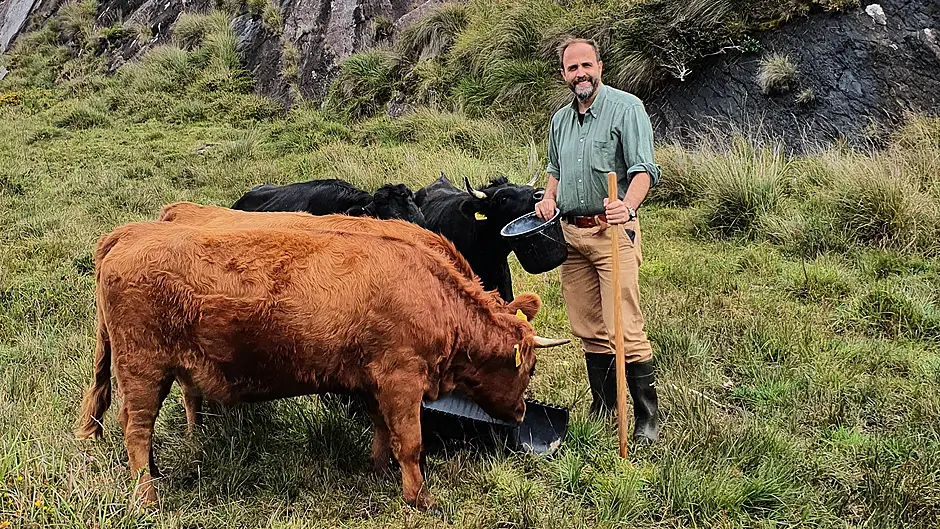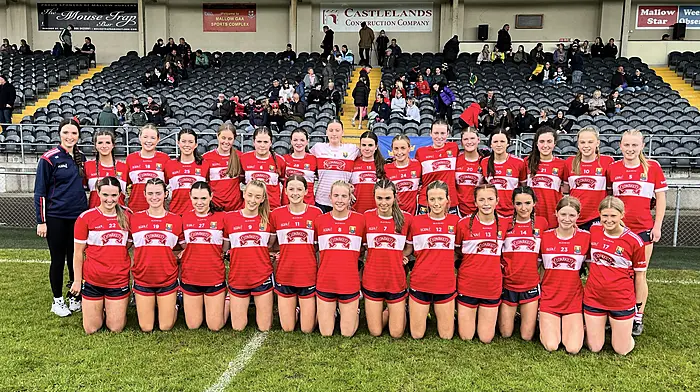AN author, environmentalist, and farmer based in Beara who has championed rewilding in Ireland says that the Nature Restoration Law will only be successful if farmers are a full part in its implementation and are properly rewarded for their role.
The European Parliament carried the proposed Nature Restoration Law with a vote of 329 for to 275 against, with 24 abstentions.
The new law sets a target for the EU to restore at least 20% of the EU’s land and sea areas by 2030 and all ecosystems in need of restoration by 2050.
Eoghan Daltun wrote the award-winning book An Irish Atlantic Rainforest, on his own efforts to rewild his property in Beara. He breeds a small herd of Dexter cattle on his holding, and is an ambassador for the group Farming For Nature.
He says that farmers must be at the heart of making the new restoration law work.
‘This needs to happen but farmers have to feel they can get on board. There’s a reason farmers are fearful and they have been let down in the past by things like SACs where they didn’t have a proper say.
‘Farmers are not to be blame for our environment’s problems. It’s a problem of society at large,’ he said.
The government announced a €3.15bn Climate and Nature Fund as part of Budget 2024 for implementation of nature restoration measures across the country but there is no detail yet as to how this will be spent in relation to helping farmers implement the Nature Restoration Law. Eoghan Daltun says it is unfair that clearer funding measures are not in place to reassure farmers. And he believes that a key part of future environmental and agricultural policy is to pay farmers for their role as nature’s custodians. ‘The government needs to give the option of being paid proper subsidies for not farming,’ he said.
Nevertheless, Eoghan says that the status quo in Ireland’s agricultural sector is not an option. ‘We can’t pretend that a field of Italian rye grass with sheep and cattle on it is looking after nature,’ he said.
‘Irish agriculture was once diverse but it has become concentrated on beef and dairy, and that leaves our food security vulnerable. In Ireland 85% of our fruit and vegetables is imported. That’s extremely depressing.’
Eoghan said he was happy that 11 of Ireland’s 13 MEPs voted in favour of the Nature Restoration Law. All of the Ireland South MEPs – Fine Gael’s Deirdre Clune and Sean Kelly, Fianna Fáil’s Billy Kelleher, Green Party’s Grace O’Sullivan, and Independent Mick Wallace – voted in favour of the law. Midlands North-West MEPs Chris MacManus (SF) and independent Luke ‘Ming’ Flanagan voted against. Both cited a lack of clarity to how farmers will be compensated.
Eoghan expressed disappointment at votes against the law but agrees that proper compensation is crucial to farmer buy-in.
It’s something that farming organisations have been stressing as they lamented the law’s passing. IFA president Francie Gorman said farmer concerns have not been addressed, and said a vacuum of information exists around the Nature Restoration Law.
ICSA president Sean McNamara said the Nature Restoration Law has created concern among farmers ‘who see this as heavy on compulsory actions and targets but light on funding commitments’.
‘Unfortunately, farmers have bitter experiences of how promised funding in the case of designated lands, has failed to materialise over many years,’ he said.
‘Instead, farmers with land designated as NHA (National Heritage Area) or SAC (Special Area of Conservation) have encountered years of frustration and seen their farm enterprises severely curtailed, and land devalued.’
Independent Ireland party leader Cork South West Deputy Michael Collins claimed that farmers and the viability of agriculture ‘are fair game when it comes to the prioritisation of a biodiversity and restoration policy that is going to wreak havoc when implemented’.
But Cork South West Fianna Fáil Deputy Christopher O’Sullivan insists farmers have nothing to fear. ‘We can no longer turn a blind eye to all the trends in terms of biodiversity, that are going in the wrong direction,’ he said.
 Members of the European Parliament voted in favour of the Nature Restoration Law. (Photo: Fred Marvaux/EU)
Members of the European Parliament voted in favour of the Nature Restoration Law. (Photo: Fred Marvaux/EU)
‘We clearly need some dramatic measures to stem these trends and protect wildlife and biodiversity. Considering the law looked in jeopardy a number of months ago this is a great result for all those interested in the environment and biodiversity.
‘It’s important to note that there are measures contained in the law which will protect farmers and the viability of farming.
‘I know that many farmers are concerned about the consequences of the Nature Restoration Law, but having read the measures I’m confident it will not negatively impact Irish farmers.’










